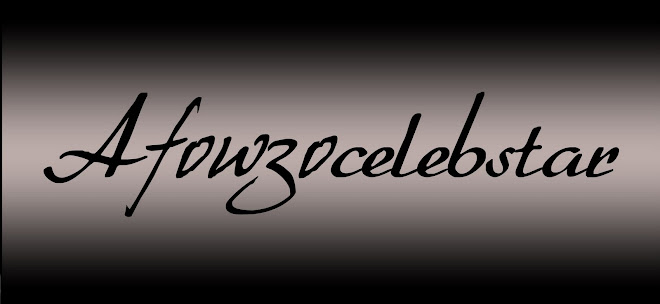After Beyoncé released her new single, "Bow Down / I Been On," Rush Limbaugh, of all people, hurried to herald a change in the singer's career path. "Beyoncé used to be the lead for a three-girl group called Destiny's Child. And their songs were attempts to inspire young women not to take any grief from men," Limbaugh explained to his listeners. But now, he said:
She's got a new song, 'Bow down, bitches,' a total 180...Beyoncé's now saying, 'go ahead and put up with it.' And you know why? I'll tell you why. Because she got married—she married the rich guy. She's even calling herself "Mrs. Carter" on the tour. She has shelved "Beyoncé"...because why? Because she married the rich guy. She now understands its worthwhile to bow down.
Various folks have said that Limbaugh is misinterpreting Beyoncé's lyrics. But it's pretty clear from the audio that he's not interpreting the lyrics at all, and probably never listened to them. His riff is based on Felicity Capon's piece in The Telegraph, where she expresses disappointment at what she sees as Beyoncé's new, less-than-feminist direction. ... this will still come as a shock to long-term Beyoncé fans. It seems that overnight we've been transformed from Beyoncé's beloved single ladies, independent women and survivors, into her bitches. From Beyoncé singing, "all the women, independent, throw your hands up at me" to "bow down bitches" a change is underway, and it leaves a bitter taste in the mouth.
Capon thinks Beyoncé's change is disappointing; Limbaugh thinks it's good—or at least funny, since it makes some feminist somewhere unhappy. But they both agree (Capon because she's a long time fan, Limbaugh because he read Capon and doesn't care enough about it to form his own opinion) that there has been a change.
I'm not so sure. It's certainly the case that Beyoncé's always had a girl-power element to her music, and she's always cheered on "Independent Women," as Capon says. But it's also true that one of the ways that Beyoncé has often shown that she is herself an independent women is by lyrically kicking her sisters.
Capon, for instance, cites the Destiny's Child song "Survivor" as an example of Beyoncé reaching out to tell women that they are strong. But that song wasn't about bonding and overcoming. It was about how much Beyoncé hated her former bandmates, LeToya and LaTavia, and about how she, Beyoncé, was going to survive the fact that she'd dumped them from the band with no warning. It's a breathtaking farrago of self-aggrandizement, self-pity, and aggressive assholery worthy of Limbaugh himself. And while it suggests a kind of girl power, I suppose, that girl power seems focused on empowering Beyoncé first, and any other women a distant second. "Survivor" isn't an aberration, either. Beyoncé's career is littered with such moments. There's the bizarrely un-self-aware slut-shaming of Destiny Child's "Nasty Girls," in which Beyoncé, of all people, tells other women to "put some clothes on." Or there's the vapid, bloated boasting in "I Was Here" from her last album, 4. Beyoncé doesn't diss, or even mention other women in the song, but it's a reminder that Beyoncé's commitments to female strength and female independence, however real—always come with a large dollop of self-absorption.
Which brings us back to that latest single, "Bow Down." Contra Limbaugh, Beyoncé is not saying that women should bow down to their men. She's certainly not saying that she, herself, should bow down to her own husband (thus the line "I took some time to live my life, don't think I'm just his little wife"). Rather, Beyoncé's saying (as Capon understands) that women should bow down to her, Beyoncé, Queen B. Because Queen B is awesome. Capon points out that this kind of swaggering boasting would hardly be noticed if a man was doing it. She's undoubtedly right. A big part of Beyoncé's feminist appeal, and just of her appeal in general, is that she performs like a disco diva and has attitude like a rock star—or, more latterly, like a hip hop performer. She's always boasting and dissing and boasting some more. When she covers Etta James she sings about how she'd rather go blind than lose her man, but in her own material there's rarely a hint of that kind of devastated vulnerability. Even when there is, as in the breakup ballad, it seems like it comes with an asterisk. "Resentment," for example, is as much about anger as pain; the background singers repeating "you lied!" sound like they're ready for a fight. And, of course, her signature songs are the joyous kiss offs. Heartbreak is something that happens to the other guy—and when it happens, you taunt him ("If you liked it then you should have put a ring on it;" "don't ever think you're irreplaceable.")
Again, this can be exhilarating. It's part of what I love about Beyoncé's music when I love it, which is not infrequently. But it's perhaps least appealing when she bolsters her rock swagger the way rock swagger is often bolstered—that is, by sneering at, or denigrating, other women. It's true that for Beyoncé "bitches" almost surely refers to the men who are beneath her, as well as to the women. But femininity is still an insult, and power is being able to treat your enemies like bitches—that is to say, like women.
This is exactly what she is doing in "Bow Down, Bitches." She's signaling that she is a tough, dangerous, fierce, independent badass. And she's doing it in the tried and true tradition of John Lennon ("run for your life if you can, little girl") or Eminem or even Nicki Minaj ("All these bitches is my sons. . . . If I had a dick I would pull it out and piss on 'em.")—by insulting women, and declaring that she's better than they are.
It's true that for Beyoncé or for Nicki Minaj, "bitches" almost surely refers to the men who are beneath them, as well as to the women. But while that puts a twist on the message, it doesn't exactly change it. Femininity is still an insult, and power is being able to treat your enemies like bitches—that is to say, like women. Beyoncé can be strong and independent, but only (at least in this case) by relying on the tired tropes of performative misogyny. Rush Limbaugh may not have understood much about the song, but he understood that, which is why he's laughing. in my openion, this issue is only doing what beyonce wants, for us to talk about her (i'm sure Madonna is mad she didn't do this first) and its promo whether you like it or not, its not to be taken so seriously! so many other people have said a whole lot worse and yet dont get half the bashing shes getting for a snippet!!! not even a full song!!!! yall need to get a job! its a stance so you can hate it or love it! and old man Rush Limbaugh has no bearing commenting on something or someone that has nothing to do with him and his mission. Maintain your own lane old man.




No comments:
Post a Comment